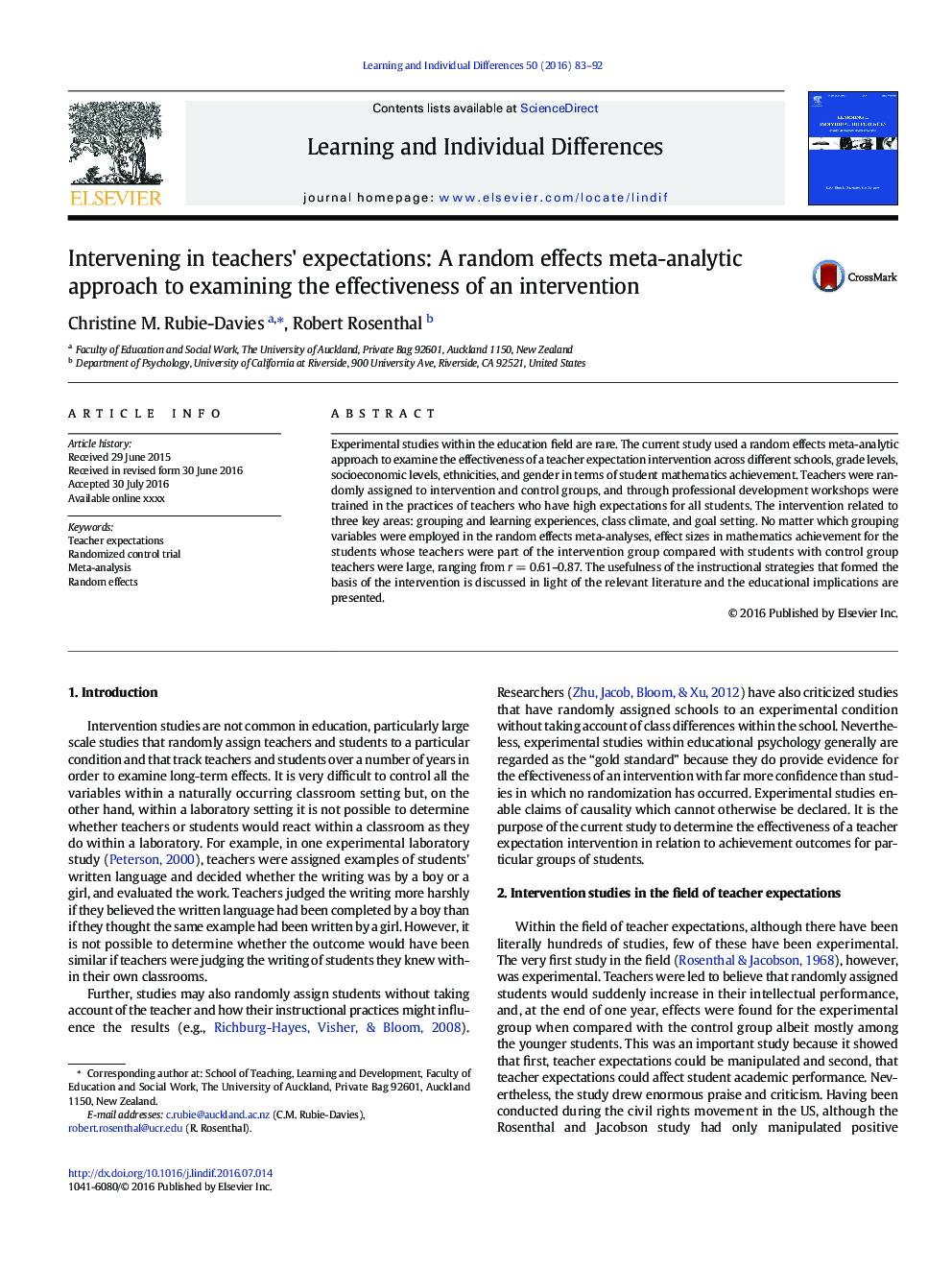| Article ID | Journal | Published Year | Pages | File Type |
|---|---|---|---|---|
| 364480 | Learning and Individual Differences | 2016 | 10 Pages |
•A random effects meta-analytic approach examined effectiveness of an intervention.•Students with intervention teachers benefitted from the intervention in math.•Intervention students from all schools, grades and SES levels increased achievement.•Intervention students from all ethnic groups and both sexes increased achievement.
Experimental studies within the education field are rare. The current study used a random effects meta-analytic approach to examine the effectiveness of a teacher expectation intervention across different schools, grade levels, socioeconomic levels, ethnicities, and gender in terms of student mathematics achievement. Teachers were randomly assigned to intervention and control groups, and through professional development workshops were trained in the practices of teachers who have high expectations for all students. The intervention related to three key areas: grouping and learning experiences, class climate, and goal setting. No matter which grouping variables were employed in the random effects meta-analyses, effect sizes in mathematics achievement for the students whose teachers were part of the intervention group compared with students with control group teachers were large, ranging from r = 0.61–0.87. The usefulness of the instructional strategies that formed the basis of the intervention is discussed in light of the relevant literature and the educational implications are presented.
